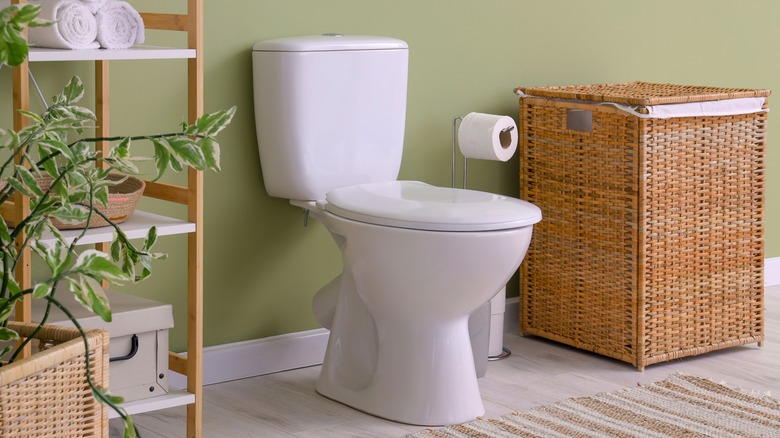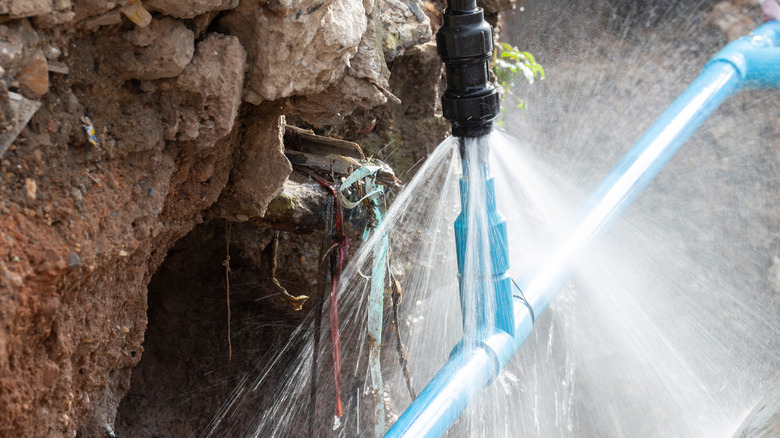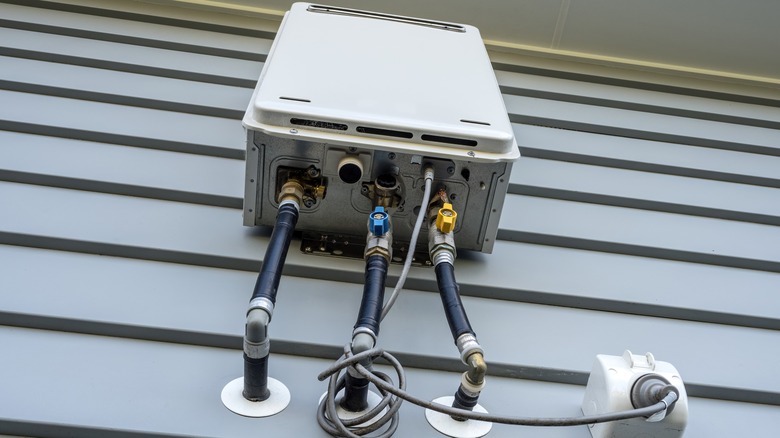Hot Weather Can Affect Your Toilet As Much As The Cold. Here's How
As the scorching summer heat intensifies, it's not just your body that feels the heat — your home's plumbing can also be affected. While we might not give it much thought, hot weather can have a surprising impact on the pipes and fixtures in your home, potentially causing issues requiring repair or maintenance. It's important to monitor the condition of your plumbing to avoid costly repairs dipping into your vacation budget. Higher heat temperatures can even affect the quality of water by promoting the growth of bacteria and other pathogens, mainly if your water is sourced from a well.
Whether you're a homeowner or a renter, there are several ways the summer heat can affect your plumbing system — from decreased water pressure to potential pipe damage to unmanageable root systems — and here are some tips regarding what you should do to protect your home both inside and out during the hottest months of the year.
Potential problems for plumbing caused by summer heat
During the summer, the demand for water rises due to activities like watering the yard, filling in-ground or blow-up swimming pools, and showering more often. All this consumption strains your plumbing system and can lead to low water pressure and even leaks (especially if the system is already compromised). This can even contribute to your toilet clogging a little more than usual. Similar to pipes constricting in freezing temperatures, they can undergo thermal expansion when the temperature rises excessively. This expansion can cause joints and fittings to loosen, leading to leaks. On the flip side, pipes can also dry out if exposed to high temperatures or direct sunlight. Dry pipes are more likely to crack without the necessary levels of moisture. This includes sprinkler systems and outdoor faucets.
Another cause for concern, believe it or not, is the warm water (thank you, again, summer heat) traveling through the pipes to the hot water heater. The hot water from outside actually puts strain on a hot water heater because it requires more energy to cool the water for that post-jog cold shower. This, in return, can lead to higher energy consumption and breakdown. Heat-related plumbing problems aren't only caused by pipe damage — tree roots creeping beneath your yard, looking for moisture, can infiltrate plumbing and sewer lines too.
Preventative measures to protect plumbing from heat-related damage
Some ways to combat summer's attack on your plumbing include installing insulated pipes (similar to when temperatures are freezing) to protect them from the dangers of direct sunlight and extreme heat. Try to avoid excess water usage during peak hours to reduce strain on the plumbing system. Schedule regular maintenance checks for appliances that require water, like your HVAC unit and hot water heater.
If your yard has mature landscaping, check the moisture levels in the soil around your home to prevent root intrusion. Taking preventative measures ensures that your home's plumbing remains in optimal condition and keeps your home protected from extreme heat. If you do encounter plumbing issues, it's best to consult a professional plumber for advice.


